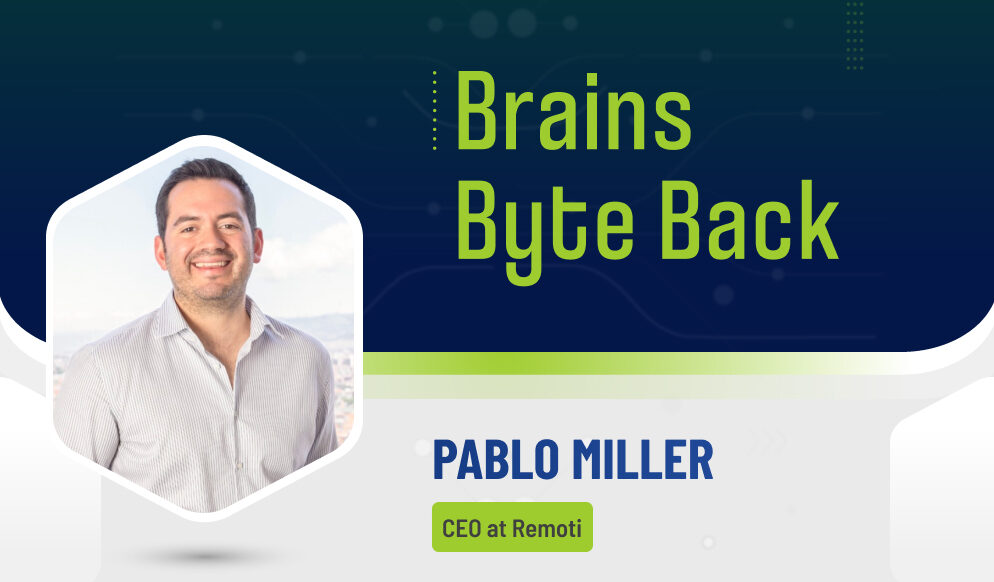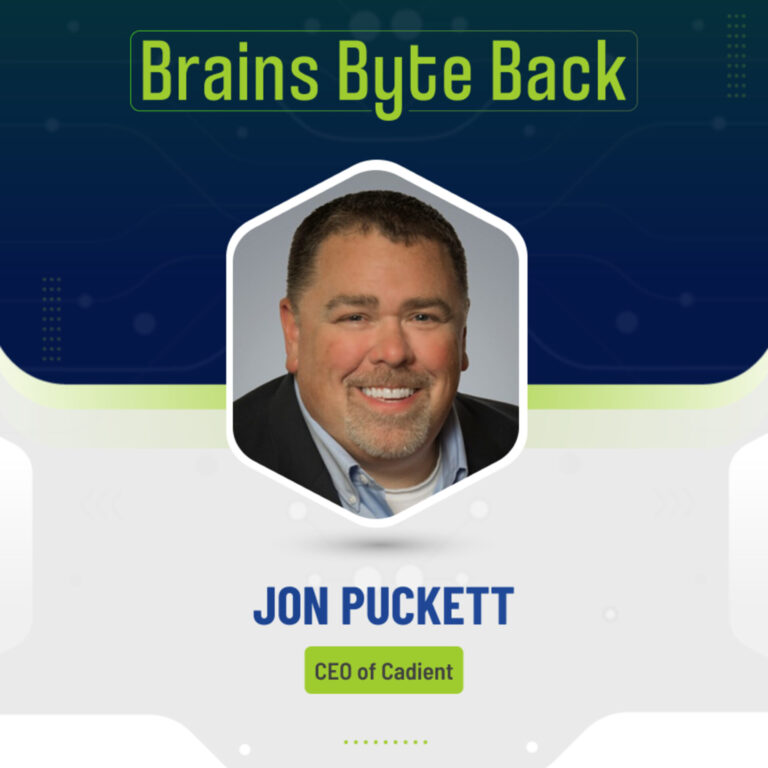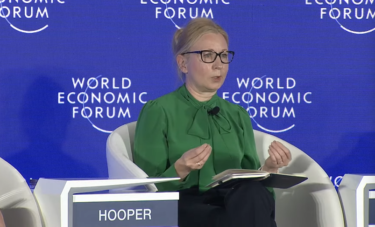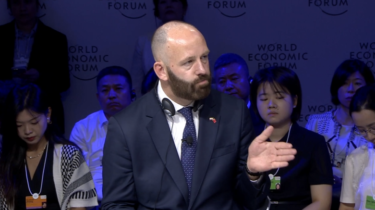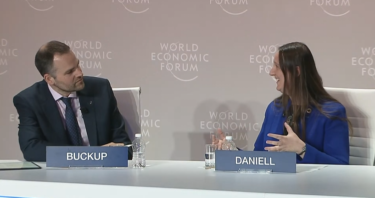In today’s episode of the Brains Byte Back podcast, we speak with Pablo Miller, CEO of Remoti, an end-to-end platform that allows companies to achieve their expansion needs through finding, hiring, retaining, and paying talent.
To start the show Miller shares how Remoti is a total talent platform that connects companies with talent in Latin America, and advocates that the platform offers three main services: talent connection, talent employment, and people products. People products include retention plans, smooth onboarding and offboarding processes, and the upcoming launch of their recruitment app.
He also shares the origin story of Remoti, explaining that the initial basis of the company was established in the UK seven years ago when Miller noticed the demand for salespeople in London’s fintech companies and started a small recruitment firm.
He recognized the need for a different approach and aimed to build a business that understood company culture and provided a unique service. While visiting Colombia, the country his mother is from, Miller witnessed the rise of second-generation Latin talent and the potential for innovation in the market and decided to set up operations in Colombia, serving clients from the US and UK.
The conversation then moves onto the topic of the future of remote work and innovation. With this in mind, Remoti aims to connect Latin American professionals with global companies that can offer better opportunities and development.
Miller also shares how he believes remote work promotes social mobility and breaks down geographical barriers, providing opportunities for talented individuals who may not have access to the same resources locally.
And finally, Miller shares insights on how to hire talent quickly and effectively for your business. He states that those looking to hire should consider international perspectives, local preferences, benefits, upskilling opportunities, and candidate output rather than focusing solely on universities.
You can listen to the episode below, or on Spotify, Anchor, Apple Podcasts, Breaker, Google Podcasts, Stitcher, Overcast, Listen Notes, PodBean, and Radio Public.
Alternatively, you can find a transcript below:
Pablo Miller: I’m the founder and CEO my main role and this business, it has been said, is to keep the lights on, turn off the fires and keep it all together. Remoti is a platform that allows companies to build technology hubs in Latin America. As I like to call it, we’re a total talent platform in the sense that we offer three services. Number one, we connect you to the talent. Number two, we employ the talent for you. And then number three, we call it people products. So we’re able to locally hire your talent and we have a number of retention products to ensure a smooth onboarding off-boarding and several retention plans. Alongside that will be launching our app in the next coming months, which allowed the whole recruitment process to be done for your template.
Samuel Brake Guia: Fantastic. thank you for joining us today, and thank you for taking a break from putting out those fires and making sure those lights are kept on. And I really want to kick off with how did Remoti first start?
Pablo Miller: So Remoti, which was formerly known as Fincrew, actually started in the UK seven years ago. So I was brought up in the UK. I was at Nottingham University, studying Politics and Sociology and this wasin 2008 when everyone hated the banks and the rise of Fintech started rising. So, I noticed that all these small, Fintechs in London, needed, graduate salespeople, and from Nottingham University, we set up a very small recruitment company. When I was doing that, I noticed that all the cool Fintech companies really didn’t like recruiters, they thought that we were transactional. They thought that we didn’t actually understand the company culture. So I wanted to build a business that was a bit different and the idea was actually set up the company in the US and then, my mother’s from Armenia, Quindío and I came on holiday to Colombia before I set up the business, and I saw something truly amazing happening in Latin America which was, first of all, the rise of, second-generation Latin talent, both locally and the ones that have gone abroad to study or work in other companies and have come back and secondly, and the markets here were just right for innovation and for disruption and so I had one investor at the time and I told him instead of, wiring the money to our Chase account in the US, can you wire it to our Bancolombia account here in Bogota and we set up the operation in Colombia, servicing US and UK clients. So we kind of trod along, working there, within their clients just operations here that everything was with outside markets and then the pandemic here and this is when everyone for okay, I don’t need to hire locally, Latin America is a market with a lot of potential. Let’s have a look at that time and that’s when Remoti was built in terms of being kind of the bridge between the West and LATAM. And that essentially has been now for the last three years.
Samuel Brake Guia: Fantastic. I have to say, I do completely understand what you mean when you talk about the potential here in Latin America and I have to say as well that it’s great to speak with you being based in Bogota because I definitely do feel like there’s an energy within the startup ecosystem, especially in Medellin and Bogota that I really love and it’s so surprising to see. And most people might not think of that if they’ve not been down here of how much potential there is here. So it’s so great to hear of this success story coming out from essentially my own back garden, well where I live anyway, at least obviously not being from here myself, but I want to know on a separate note, Remoti, what’s the story behind that name? How did that come about?
Pablo Miller: Yeah, great question. Just to kind of supplement what you’re saying, when people ask us, we’ve managed to scale a team, to 70 people. And we took very limited funding and our secret sauce has always been our people. There is great energy in this country. And people want to work for companies where they’re treated, where they’re respected and therefore this is why when foreign companies look at Latin America and Colombia and it’s a great place to start a business. So when we change the name from Fincrew which was meant to be like fintech recruitment to Remoti, we wanted to give a real remote work vibe and secondly, because we’re building a bunch of technology. If you are onboarding products of boarding products for our salary benchmark products, we want to obviously have the technology infrastructure, so really Remoti stands for remote technology infrastructure and we get good feedback from our clients because it says exactly what we do. Because ultimately you can’t just set up a remote team. Number one, it is very hard to hire local people if you’re based UK or China or whatever. And then to actually hire them properly to ensure that their payroll, legal taxes and all that are done accordingly and also to retain them. So that’s where the name remote technology infrastructure comes from that. If you want to just build a remote team, you just integrate pur platform into your business and off you go.
Samuel Brake Guia: That’s nice. Yeah, it does have that real startup vibe. I can see that in the name and I think it reflects what you do. We’ve obviously spoken a lot about the company here, but I would love to know some more insights. So can you share some insights on what companies have to do in order to secure top talent?
Pablo Miller: Yeah, so it’s also quite an interesting topic obviously, in the market that we’re in. Last year, our key markets, we work along with Fintech clients, we worked a lot with Web 3 clients, and obviously with the down market, we’ve had to find alternative markets, to find growth in these, tricky market conditions. So we look at one market that’s growing very fast for us is actually ERP Implementation Consultants. So these folks go into companies to implement in this SAP, Salesforce, Workday and traditionally you’d have to hire someone locally, and what these big institutions, found that actually make sense to have some folks based in Argentina, based in Cali, Bogota. And they design implementing, literally from here and it’s a remote role. So, for us, we’re very easy to work with in the sense that we find a client. They tell us what their needs are. We then tell them exactly where we believe in the region that can be a talent pool, we conduct salary benchmark reports, So we’re in contact with Finance to ensure that it’s in conjunction with them, We then assign a full team and that team, our slogan is “Quality at pace”, that team works full time for that assignment and then we’ll be able to deliver results very very quickly at the highest quality to our clients.
Samuel Brake Guia: Fantastic. it sounds like you got it. Very nailed down. And I am so happy to see that there’s so much innovation in this space because I think remote work really does feel like it’s here to stay and as someone that feels the benefits of this. And I know so many other people have as well. It’s so exciting to see it flourish really. The benefits of this are just I think so profound that it’s great to see that you’re working on innovating in this space to make sure it prevails really
Pablo Miller: Absolutely. And I think one of the key things, from my story. My mother was from Armenia, she traveled to the UK, my dad is English and we’re very fortunate that we went to, good schools, good universities, we learn how to communicate well. And that obviously gave us a lot of opportunities for me and my sister when it came to jobs. So really my vision with remote work is, I want to get that untouched talent of Latin America that has all that potential. We want to help them connective with company that locally may not be able to pay them as well. May not be able to develop them as well, and may not be able to give them the opportunities. And so there’s a wonderful kind of social mobility angle to the rise of remote work.
Samuel Brake Guia: Yeah. Breaking down borders. That is a wonderful side effect of this, the remote work digital world that I can see here. And I also have to say I’ve seen on your blog that you have a post titled, how to recruit fast Six practical strategies to hire quickly. Now I would definitely recommend listeners, go and check that out. But while I have you here, I would love to cover a few insights that you can share based on this article, as well as your own knowledge and how our listeners can hire quickly and effectively.
Pablo Miller: Yeah, absolutely. I think one of the key things that, obviously supplements the title is that you’ve got to think internationally and at the same time, think realistic. So as you know being based in Medellin, someone from Medlelin is very different from someone in Bogota. So as a business you need to understand the differences of particular people and, particular geographical candidates would like, in terms of benefits the way they want to work, some people want to work, hybrid, someone people want to work remotely. Number two, you need to be able to give them access to upscale courses locally as well. if we’re looking, hiring someone in Europe, maybe they’re not that interested in, having English courses, for example, as opposed to candidates in Latin America, and number three, you need to obviously be open-minded and not be kind of judgmental about universities. Always look at the output that these candidates achieve. So if a candidate has done incredible work at a local startup, they should not be discounted if they haven’t been to Harvard or something. It’s very important to have these sort of mindsets when looking at hiring and connection.
Samuel Brake Guia: I think that’s some solid advice there and I think it can be surprising just how much of a difference there can be when it comes to even small distances, like you mentioned, Medellin to Bogota. And I think you can find that across many countries and I do want to know, are there other companies operating in this space? And if so, how do you differentiate yourself from the competition?
Pablo Miller: Great question. So HR tech, it’s certainly a crowded space and number two, I mean there’s a lot of companies now saying, I can help you find talent in Latin America, it’s cheap, etc. You have got to be very cautious about this in the sense that certain companies are trying to just sell Latin America for the cheap economic sense. But really Latin America is a great example of the modern workforce, the folks that are developers here, they not the ones that have been building databases in a bank for about 30 years, it’s that kind of millennial developer the self-taught, worked at startups. And so where we differentiate ourselves is that we have access to the modern workforce that can build modern digital products. And secondly, we’ve been focusing more on corporate clients, they hate finding new supplies for everything. So given that we’re a total talent platform. They have three essential services from finding to hiring to retaining talent. It means the clients can with one provider, solve the whole problem. So when I look at competitive Ontop, fabulous business, great founders, but they just offer the payroll solutions, they don’t offer retention products. They don’t offer talent scout. And then obviously deal who are one of the pioneers and this amazing, payroll business. When the pandemic hit they got great technology, they really just focus on the payments and payroll side and so really if you don’t retain the candidates, it’s hard to offer them payroll. So this Remoti fits in well and we can offer all three services. Most importantly we have access to the modern workforce and we have tools in order to retain them and also to attract them to your business.
Samuel Brake Guia: That makes a lot of sense. I can see that and I do like the idea that this modern world is more of a meritocracy, it matters less where you are and just more about your skills and your ability. And I think that that’s really important because I really dislike the fact that so much is dictated by where you’re born. And I think that when job opportunities are open to everyone in the world, that just feels like it’s more of a meritocracy, the way it should be. And really my last question to you is what’s next on the horizon?
Pablo Miller: Yeah. absolutely. So, at the moment, as I mentioned we’ll be launching our app and our app is super interesting because, like most problems in life, most problems are caused by, bad communication. So, our industry has a very bad reputation for candidates not being given proper feedback or candidates not being fully prepared or candidates not being rejected probably. So we’ve got a communication tool that candidates can download and they seamlessly go through the whole recruitment process and all the communication between the candidate, client and recruiter is in one place. Number two, in terms of the payroll, the digital wallet will be in the app so they can track their payments. They can also track when they will be paid. And number three will be building a marketplace where there’s going to be upsell. So we’re going to be offering our community of developer language courses and also development courses. And so really in one place, you’d be able to find a job. You’ll be able to grow financially. Number three, you’ll be able to upskill. So essentially we’re digitalizing this community and helping them, regardless of where you are in Latin America to find a great job, be paid accordingly and also to be upskilling. And that is really our passion for the modern workforce.
Samuel Brake Guia: Fantastic. if people are listening and they want to keep up with the work that you folks are doing. Pablo, what’s the best way for them to do that?Pablo Miller: So obviously the main channels, we have LinkedIn. We also have Instagram with Facebook and also on our website. We also have two offices, one in Bogota and Medellin, so people are welcome to come in for a coffee, would be delighted to host them. And, from candidates to clients, we have an open-door policy and are always very happy to virtually meet.
Disclosure: This episode includes a client of an Espacio portfolio company



